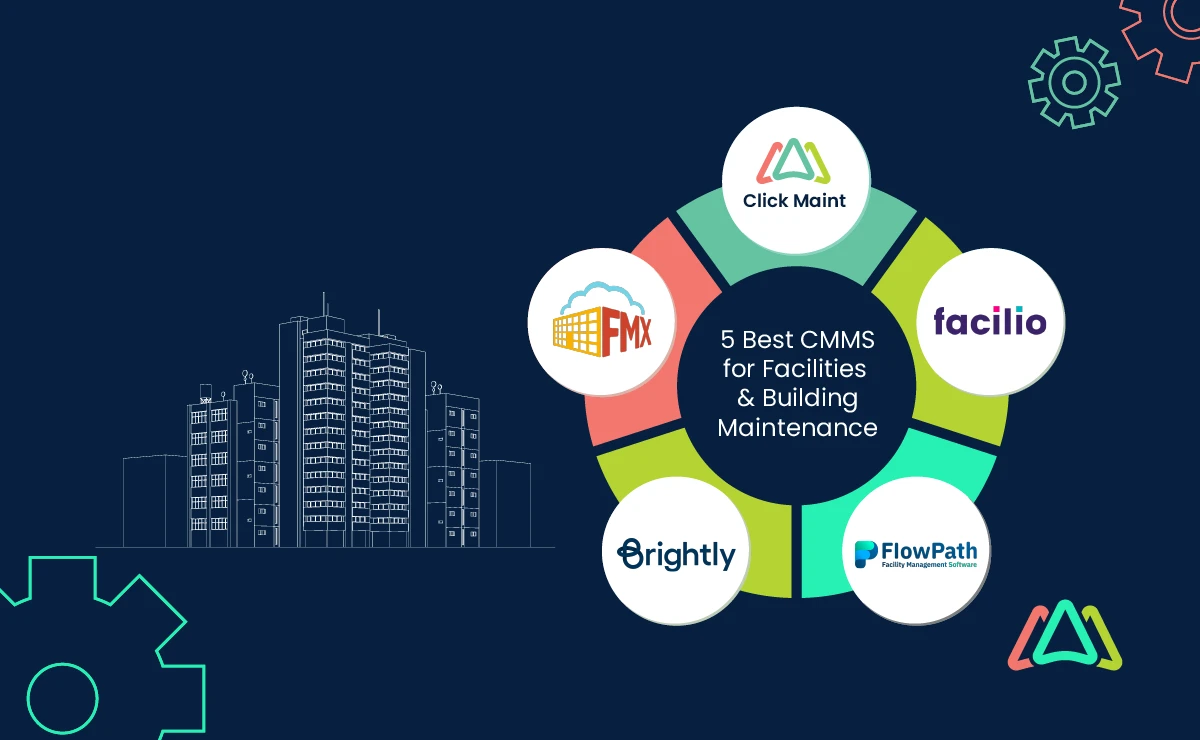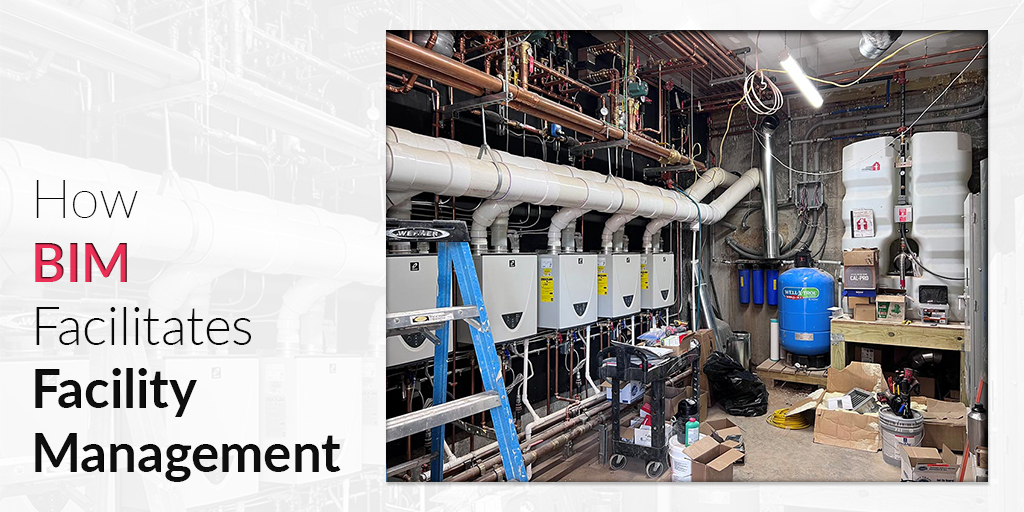Facility Management-- Necessary Services for Reliable Operations
Facility Management-- Necessary Services for Reliable Operations
Blog Article
Trick Fads Shaping the Future of Facility Administration in 2024
As we look in advance to 2024, the landscape of facility monitoring is positioned for considerable transformation, driven by numerous crucial trends. The assimilation of wise building modern technologies and a shift towards data-driven decision-making assurance to improve functional effectiveness while prioritizing sustainability in technique.
Smart Building Technologies

Smart structure modern technologies encompass a wide range of systems, including intelligent lighting, a/c controls, and safety systems. By incorporating these systems, center supervisors can keep an eye on and readjust criteria in real-time, causing substantial decreases in energy waste and operational costs. For example, smart sensing units can detect tenancy degrees and readjust illumination and temperature accordingly, ensuring that energy is only made use of when essential.
Moreover, these technologies facilitate boosted information collection, enabling organizations to track usage patterns and identify chances for more renovations. The execution of wise building technologies not just adds to sustainability goals but also creates much healthier work settings that can boost worker productivity and complete satisfaction.
As we move into 2024, the fostering of clever structure technologies will likely accelerate, showing a broader shift towards more intelligent, responsive, and sustainable center administration practices.
Data-Driven Decision Making
Significantly, companies are leveraging data-driven decision making to boost facility management techniques. By utilizing data analytics, facility supervisors can obtain workable insights that considerably improve operational effectiveness and resource allowance. The assimilation of innovative innovations, such as IoT sensing units and real-time tracking systems, enables the collection of large quantities of information on structure efficiency, occupancy prices, and power intake.
This riches of info permits center supervisors to determine patterns, anticipate maintenance demands, and proactively address issues prior to they escalate. For instance, predictive analytics can anticipate devices failings, decreasing downtime and fixing expenses. In addition, information visualization tools help with much better interaction amongst stakeholders, making sure that educated choices are made collaboratively.
Additionally, data-driven methods improve tactical planning by allowing center managers to examine the effectiveness of present practices and make educated options relating to investments in modern technology or framework. As organizations significantly prioritize functional quality, data-driven choice production is poised to come to be a keystone of successful center management techniques in 2024 and beyond. Inevitably, the ability to leverage information efficiently will equip companies to create much more effective, efficient, and resilient facilities.
Sustainability and Environment-friendly Practices
The focus on data-driven decision making naturally aligns with the growing emphasis on sustainability and green practices within center management. As organizations increasingly prioritize ecological duty, facility managers are leveraging Related Site analytics to maximize resource use, decrease waste, and lessen carbon footprints. This strategic approach makes it possible for the integration of energy-efficient systems, such as LED illumination, clever HVAC controls, and renewable resource resources right into center procedures.
In addition, the execution of lasting methods prolongs beyond energy consumption. Facility managers are promoting and adopting environment-friendly materials reusing efforts here are the findings to develop a circular economy within their centers. This not only boosts the environmental profile of the organization yet likewise promotes a culture of sustainability amongst workers.
Compliance with environmental guidelines is another important facet driving the fostering of eco-friendly practices. By utilizing information analytics, center supervisors can check compliance metrics and recognize areas for improvement, guaranteeing adherence to regional and international sustainability requirements.
Hybrid Work Models
A substantial shift towards crossbreed job designs is reshaping the landscape of center monitoring in 2024. This paradigm integrates in-office and remote job, necessitating a reevaluation of room use, resource allotment, and staff member involvement strategies. Organizations are significantly identifying the relevance of flexible workspaces that deal with diverse needs and choices.
Facility managers have to adapt by carrying out flexible workplace designs that support collaborative efforts while offering locations for focused job. This consists of the integration of innovation to promote smooth interaction and partnership among in-office and remote staff members. Smart structure services, outfitted with analytics and sensors, enable real-time tracking of space use, making it possible for organizations to maximize their atmospheres efficiently.
Furthermore, hybrid work versions stress the requirement for efficient center monitoring that focuses on employee experience. In essence, the crossbreed work model is changing facility management, encouraging an aggressive strategy to fulfill the advancing needs of the labor force.
Improved Owner Wellness
As companies embrace hybrid work versions, an increased focus on passenger redirected here wellness is becoming indispensable to facility administration strategies. Facility Management. This change recognizes that a pleased and healthy labor force directly affects efficiency and retention prices. Center managers are now prioritizing environments that promote physical and mental health, integrating elements such as natural lighting, biophilic style, and easily accessible wellness resources

Modern technology plays a crucial duty in this evolution. Smart structure systems can monitor environmental variables and adjust settings in real-time, guaranteeing optimal convenience levels - Facility Management. Moreover, feedback devices, such as tenancy sensing units and employee studies, permit center managers to continually improve wellness initiatives based upon resident demands.

Conclusion
In 2024, the future of center administration will certainly be considerably influenced by the combination of smart structure technologies and data-driven decision-making, cultivating enhanced operational performance. Sustainability initiatives will focus on eco-friendly methods, while the appearance of crossbreed job models will require flexible office layouts. Moreover, an enhanced concentrate on occupant wellness via innovative a/c systems and biophilic design will certainly add to much healthier work environments. These trends collectively emphasize the evolving landscape of center management in feedback to modern challenges and possibilities.
Center supervisors are promoting and taking on environment-friendly materials reusing efforts to produce a round economy within their centers.A significant shift towards hybrid work designs is reshaping the landscape of center management in 2024.Moreover, hybrid job designs emphasize the demand for effective facility administration that focuses on employee experience.As companies accept hybrid work models, an enhanced focus on occupant health is coming to be indispensable to center monitoring methods.In 2024, the future of center management will be significantly influenced by the integration of wise structure modern technologies and data-driven decision-making, fostering enhanced operational efficiency.
Report this page